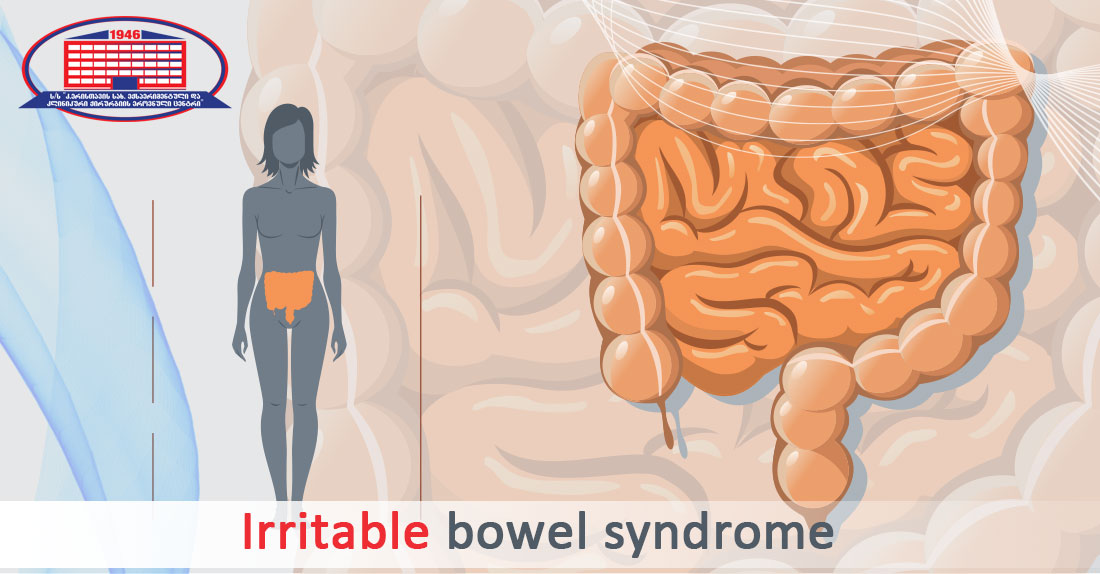
The most common syndrome of modern life
In the article you will find the following information:
- What is irritable bowel syndrome;
- Symptoms;
- What is flatulence;
- What is diarrhea;
- What is constipation;
- Prohibited food;
- Diagnostic methods.
Irritable Bowel Syndrome (IBS) is a functional disease of the large intestine, since in this pathology organic damage to the intestines is not observed at all. It is characterized by dyskinesia of the large intestine, or impaired motor-evacuation function, which lasts for more than 3 months.
A similar clinical picture may have pathologies such as:
The highest frequency of irritable bowel syndrome is observed in 30 to 40 years. At the same time, it should be noted that the syndrome is 2-4 times more common in women, than in men.
What Causes Irritable Bowel Syndrome
Its cause is unknown, however, there are several contributing factors, including:
- Neuro-mental condition;
- Psycho-emotional impact;
- Stress;
- Reduction of ballast substance (in food);
- Hypodynamics (immobility);
- Small pelvic diseases
- Excess weight
- Menopause
- Diabetes mellitus;
- Acute intestinal infection (shigellosis);
- Dysbacteriosis;
- Fermentopathy.
Symptoms of Irritable Bowel Syndrome
They are diverse, however, the most characteristic are:
The pain is usually localized around the umbilicus cord or in the lower segment of the abdomen. The complaint mostly disappears, or diminishes after defecation or gas excretion.
Flatulence
One of the hallmarks of IBS is flatulence, it is known as intestinal tympanitis and its main characteristic, in the gastrointestinal tract is the so-called accumulation of gas, which subsequently causes a feeling of heaviness and bloating.
Flatulence can be isolated, or it can be associated with other gastrointestinal symptoms, such as diarrhea, constipation, abdominal pain, weight loss, etc.
It is mainly characterized by local pain, which intensifies in the evening.
Diarrhea
Diarrhea, the same as diarrhea, is three or more defecations (bowel action) during the day, with liquid or porous feces.
Diarrhea can be caused by both infectious and non-infectious factors.
Causes of infections:
- Bacteria - Salmonella, Shigella;
- Viruses - enterovirus (rotavirus, adenovirus);
Non-infectious causes are:
Constipation
Constipation, is a delayed, difficult or incomplete emptying of the intestines. Delayed bowel movements for 48 hours or more are usually considered constipation. Most people have bowel movements once a day, although in some cases emptying the bowels every two days may be considered normal.
When a patient suffers from constipation, due to the indigestible mass in the intestine, fermentation and digestion processes develop, which intensifies intoxication. Proteins and fats are broken down, the products of their breakdown accumulates in the body, acidosis begins, the permeability of the overfilled intestinal wall is violated, exudate accumulates in the abdominal cavity, which becomes infected and may develop peritonitis.
Foods that are prohibited during IBS
It should be noted that the development of flatulence is facilitated by eating foods rich in cellulite, starch and pectin, such as:
- Legumes (beans);
- Broccoli;
- Cabbage;
- Fruit;
- Cereal;
- Potatoes;
- Milk;
- Fatty foods;
- Wine;
- Beer;
- Soda;
- Chocolate;
- Mushrooms;
- Sour pickle;
- Salted product.
Abdominal bloating is sometimes accompanied by peptic ulcer disease, gastritis, duodenitis, inflammatory bowel disease, liver and bile duct pathologies, and gastrointestinal oncological diseases.
IBS diagnostic methods at the gastroenterology service of the National Center of Surgery
Diagnosing irritable bowel syndrome is not simple, because there are appropriate criteria for it. Differential diagnosis of irritable bowel syndrome with other pathologies is necessary, that is why the following clinical-laboratory studies are performed:
- General blood test;
- Stool analysis;
- X-ray examination;
- Colonoscopy;
- Computed tomography (if necessary).
Remember, a healthy lifestyle plays an immeasurably big role.
Wish you health!









